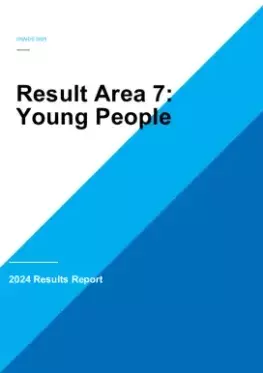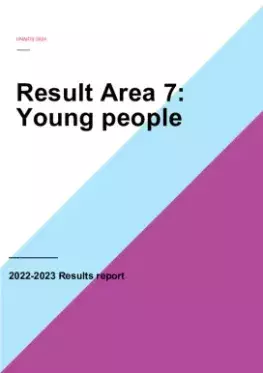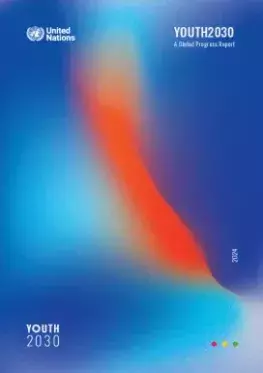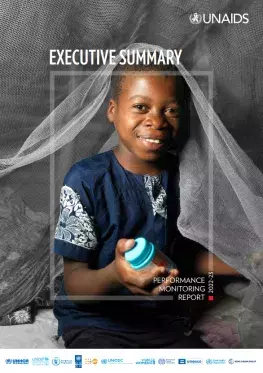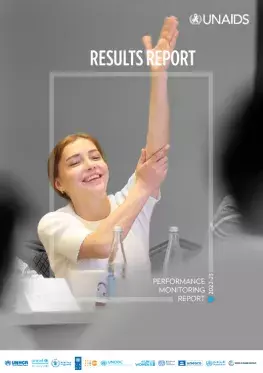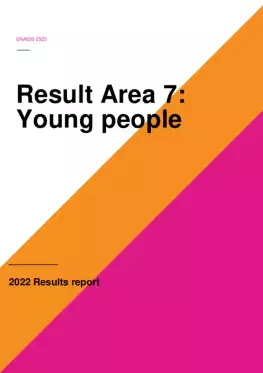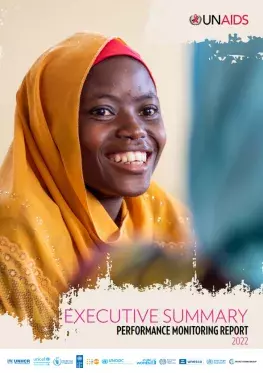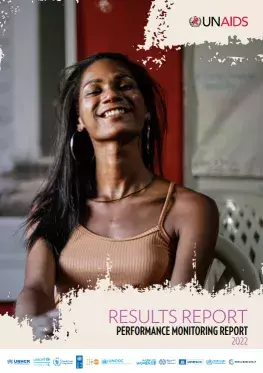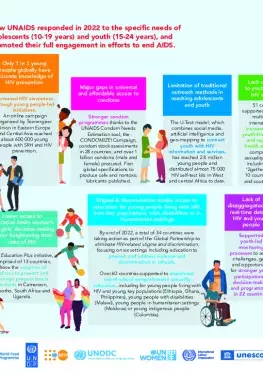The Joint Programme further contributed to sustaining and urgently translating global, regional and national political commitments such as a regional workshop on advancing the education, health, and wellbeing of adolescents and young people in eastern and southern Africa. As of November 2024, 14 countries had endorsed the renewed and extended Eastern and Southern Africa Ministerial Commitment on Health and Well-being of Young People, which is for accelerating investments and efforts to address sexual and reproductive health challenges faced by adolescents and young people in the region.
In 2024, with support from the Joint Programme, 53 countries scaled up multisectoral interventions that align with ministerial commitments to increase access to youth-friendly sexual and reproductive health services including comprehensive sexuality education to improve young people’s well-being. Thanks to the Joint Programme support, national health strategies increasingly integrate HIV programming for young people. New technical guidance is available on prioritized evidence-informed interventions for adolescents and young adults living with or affected by HIV across the HIV cascade. Thirty-four countries developed and implemented costed plans to expand and institutionalize youth-led HIV responses. Sexual and reproductive health is also more integrated into national youth policies and plans in 99 countries.
Through the joint Education Plus initiative, co-led by the Secretariat, UNESCO, UNFPA, UNICEF and UN Women, the importance of access to secondary education as an important HIV-related strategy for adolescent girls and young women gained greater visibility. The Education Plus Secretariat supported policy advocacy at regional and global levels. The African Union’s Continental Education Strategy for Africa (CESA 2026–2035) now includes 20 new objectives that reflect Education Plus priorities. As of 2024, 15 countries have committed to undertake actions to implement Education Plus recommendations.
Thanks to the Joint Programme’s support, there is stronger youth leadership and youth-led HIV responses, including engagement in decision-making, such as through the UNITED! movement, innovative toolkits and youth-led digital platforms for adolescents and youth information to access HIV, SRH and other health services. At the UN General Assembly and the Summit of the Future in September 2024, with UNAIDS support, young social media influencers living with HIV called for greater investment to enable young people to drive change as future leaders.


